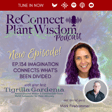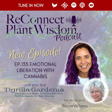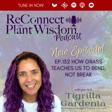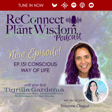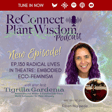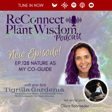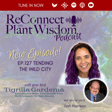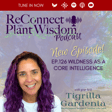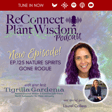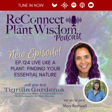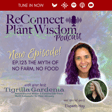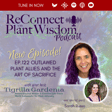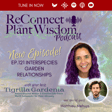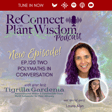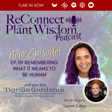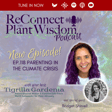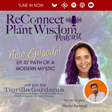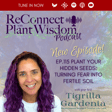
Ep.129 Evolution of What We Eat for Self-Healing with Christine Ruch
What if every meal could become a conversation with nature? In this episode of Reconnect with Plant Wisdom, I sit down with holistic transformation guide Christine Ruch to explore how food becomes a living bridge between body, spirit, and ecosystem. Christine shares her deeply personal journey from multiple sclerosis diagnosis to full vitality through a radical reconnection with plants—not just as nutrients, but as teachers of self-healing.
Together, we reimagine eating as a form of co-creation, where plants and animals express their fullest intelligence through us. You’ll hear how nature’s rhythms, ancestral memory, and intuitive listening can guide not only what you eat, but how you live.
What You’ll Learn About Conscious Eating and Self-Healing
🌱 How to rebuild trust in your body’s innate intelligence.
🌱 Why food isn’t a resource—it’s a relationship.
🌱 What plants teach us about healing through cooperation, not control.
🌱 How honoring seasonality and cycles leads to sustainable well-being.
✨ Resources ✨
🌱 Expanded Show Notes
🌱 Christine Rook’s Substack: The Fresh Life
🌱 Holistic Transformation Guide
🌱 Naturally Conscious Community (NCC) — Join the Ecosystem)
👤 Guest Spotlight 👤
Christine Ruch is a Holistic Transformation Guide who helps women with Multiple Sclerosis reconnect to their body’s innate wisdom and healing potential. After 20 years healing her own MS naturally through whole food nutrition, nervous system restoration, spiritual practice, plant medicine, deep self-inquiry, and both Eastern and Western modalities, Christine now guides others on their own transformative path. Bridging science and soul, she offers tools to move beyond symptom management into lasting inner healing—sharing insight, hope, and grounded practices for listeners ready to reclaim their health from the inside out.
🔗 Connect & Explore More
🌿 Website
🌿 Contact
🌿 Shop Eco-Conscious Partners
Socials
📸 Instagram
📘 Facebook
💼 LinkedIn
▶️ YouTube
🎵 Credits
Opening + Closing music by @Cyberinga and Poinsettia

